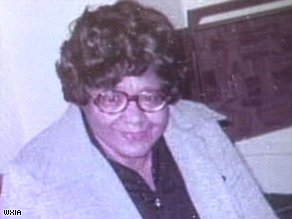I’ll never forget the first time I saw the show. It was Season 3, part 2. I was flipping through the channels, looking for something to watch and for maaaaaaaaaaaaybe 30 seconds (possibly a minute, but, well, I wasn’t timing it, so…yeah) I landed on Buffy’s climactic battle with the Mayor. He had just transformed into a giant snake and graduation day had gone from “Wheeeeeeeeee, no more school, no more books, no more Snyder’s dirty looks” to “Um, there’s a giant snake AND WHERE THE HELL IS BUFFY, THIS IS HER WHEELHOUSE?!” i didn’t remain on the channel for long (see above, re: 30 seconds) as nothing grabbed me. I changed the channel right as the Mayoral Snake devoured someone (can’t recall who).
The next time I saw Buffy, I watched as Glory love tapped her way out of Willow’s force field barrier and absconded with Dawn (the antepenultimate episode of S5; Alexandra, that’s for you). I saw Buffy try to hit repeat on Glory’s actions–but without Glory’s strength–thus failing to save her sister. For some reason, *something* about the end of this episode grabbed me. Maybe it was the feelings of complete and utter failure Buffy experienced, the sense of impending doom that permeated those last few episodes, or maybe it was the fact that Buffy collapsed into what looked like a waking catatonic state. Whatever the reason, I had to know more.
I made sure to set my VCR to record the next…did I really just type a sentence with VCR? Man, I feel like worn out aged cheese. Anyways…I recorded the next episode, which featured Willow venturing into Buffy’s mind to help her out of her catatonic state, and while it was entertaining, I wasn’t hooked.
What hooked me was the *final* episode of Season 5, ‘The Gift’. The snappy banter, the snazzy dialogue:
“You’re just a human. You can’t understand my pain.”
“Then I’ll just have to settle for causing it.”
“<gasp>…the Slayer’s a robot? Did anyone else know the Slayer was a robot?”
“Glory?
.
.
.
You’re not the brightest god in the heavens, are you?”
the quips, the emotional arcs, the action…it all was just a great big ball of wow (over time, especially when I watched the series from start to finish, this became one of my favorite episodes, in no small part due to the satisfaction of watching Buffy FINALLY kick Glory’s royally obnoxious ass).
As I mentioned, I eventually watched every episode of the series. I also watched every episode of the series David Boreanaz Is A Sexy Vampire Seeking Redemption, aka Angel (who had THE most bangin’ theme song in the history of ever), which in some ways, I found superior to Buffy’s show. Once the series ended and Joss Whedon made a deal with Dark Horse Comics, I even started collecting the comic book series which is an official part of the canon (recently picked up the first 2 issues of Season 12, in fact). The one thing I haven’t done though, is watch the Kristy Swanson movie. I know it’s part of the history of the show, and I know it is important, but the cheesiness of the 10-ish minutes I did watch (once, in days long ago) reeeeeeeeeeeeeally turned me off. It was groan inducing. Not in the good way either.
Over time though, I found that repeat viewings of the series were…hmmm…they were still enjoyable, but there was another layer on top. My appreciation of the series found itself sitting alongside some issues I had with the show. I hadn’t picked up on these issues when I first watched the series all the way through, nor when I did it again. It wasn’t until I started chatting with other fans, reading online fan sites, and perhaps most importantly, when I began hanging out in online feminist sites. Among the many issues:
- ableism
- classism (Cordelia’s ‘softer side of Sears’ comment towards Willow back in S1 is one example)
- stigma against mental illness
- the series’ feminist rep is overblown
- Xander–the epitome of the “Nice Guy” was actually a Grade-A douchebag (which says a lot about Whedon, as Xander was based to some degree on teen Joss)
- ‘magic as a metaphor for addiction’ was far from the greatest idea,
- Angel is a creepy, paternalistic stalker
aaaaaaaaaaaand (not that this is the only other issue, but it’s the one most relevant to this post), the depiction of People of Color on the series was firmly on the Not Remotely Good Side. I mean, come on…if a white guy is aware enough to notice the failings of the show vis-a-vis race, then you know it was P-R-O-B-L-E-M-A-T-I-C. Or, you know…racist.
So, when I read that joss Whedon is working on rebooting Buffy (YES, I JUST SAID THAT), I initially got more than a little bit cringe-y on the inside. See, not only is he rebooting the show, but he’s doing so with a Black lead. Given the way the original series treated Black women characters (sidelining them, giving them virtually nonexistent narrative arcs, literally forgetting about them once they died, using them solely as a vehicle to make white characters shine), such a headline filled me with the opposite of excitement. However. There is reason to hope. A very significant one. In the form of Monica Owusu-Breen:
Continue reading “Buffy is coming back and this time, she’s going to be Black”










